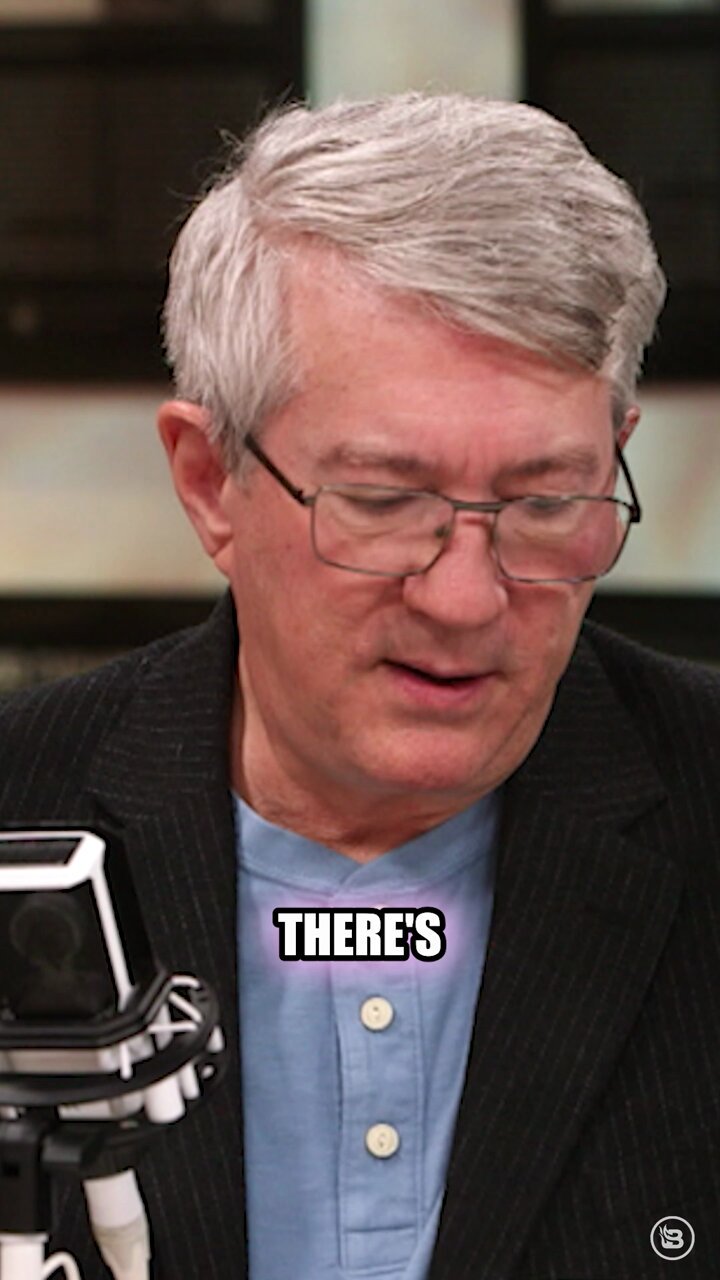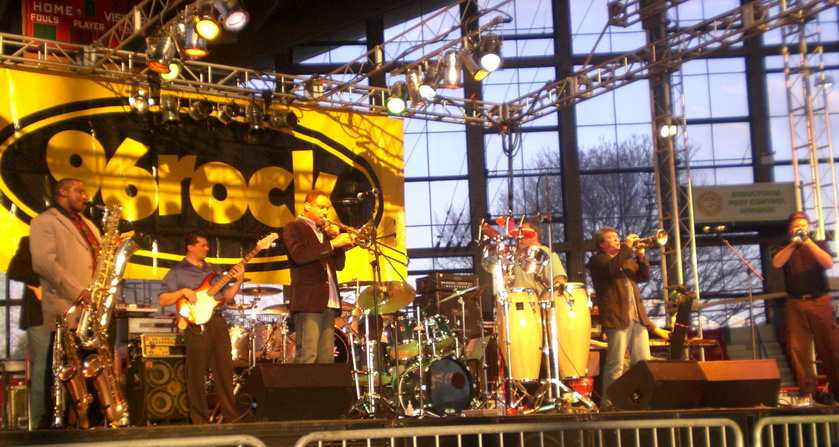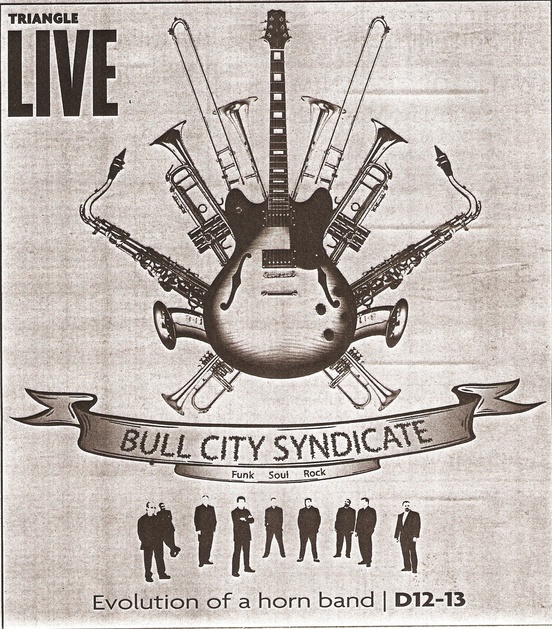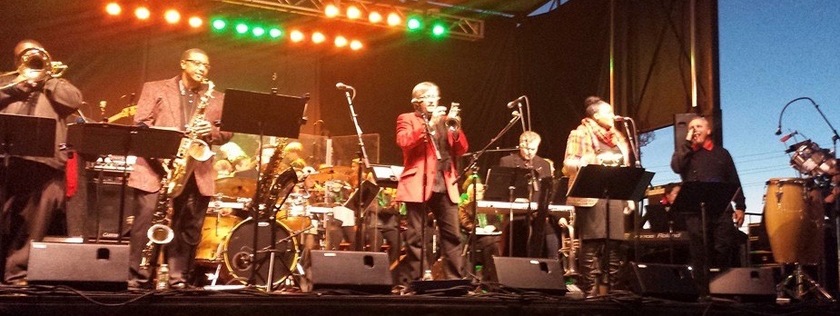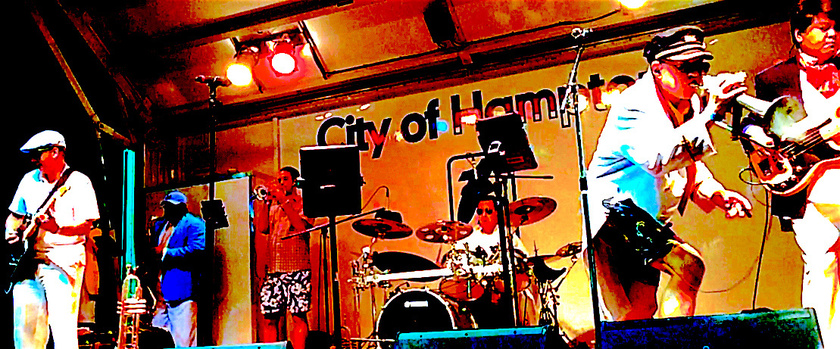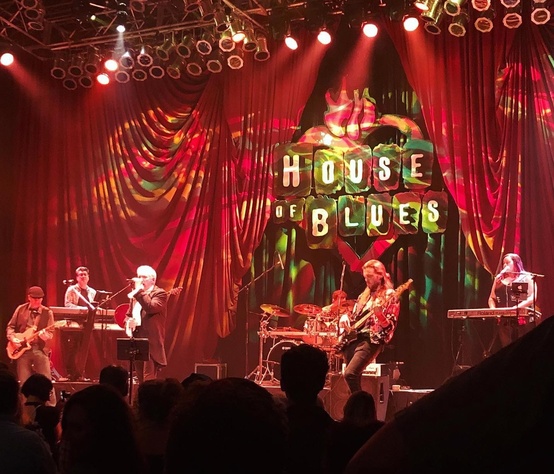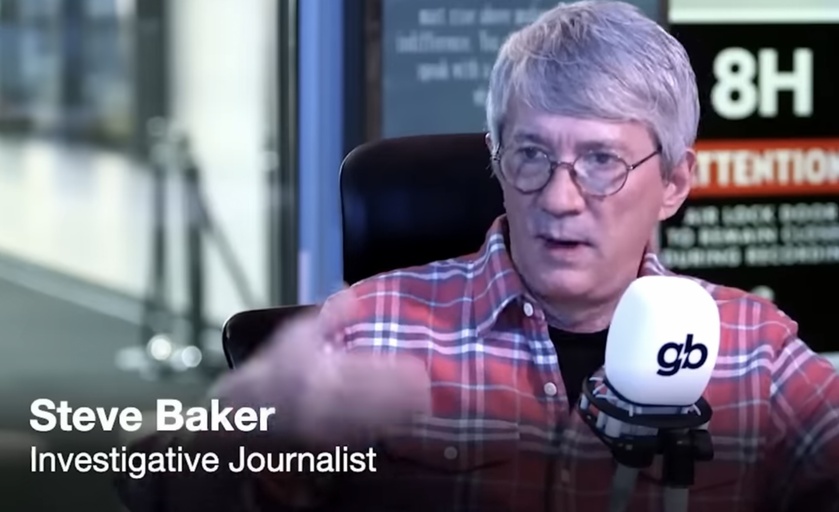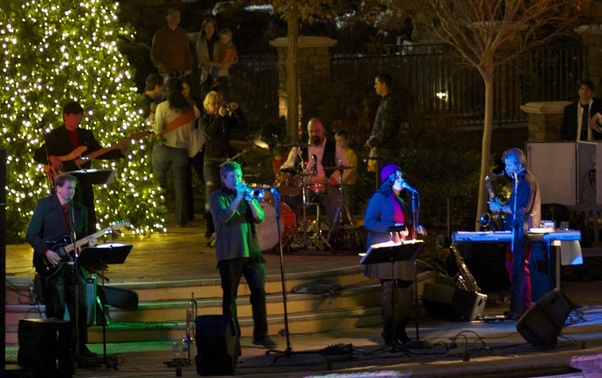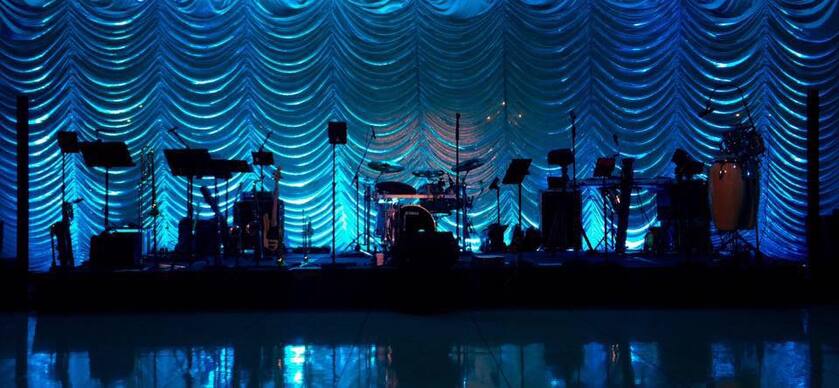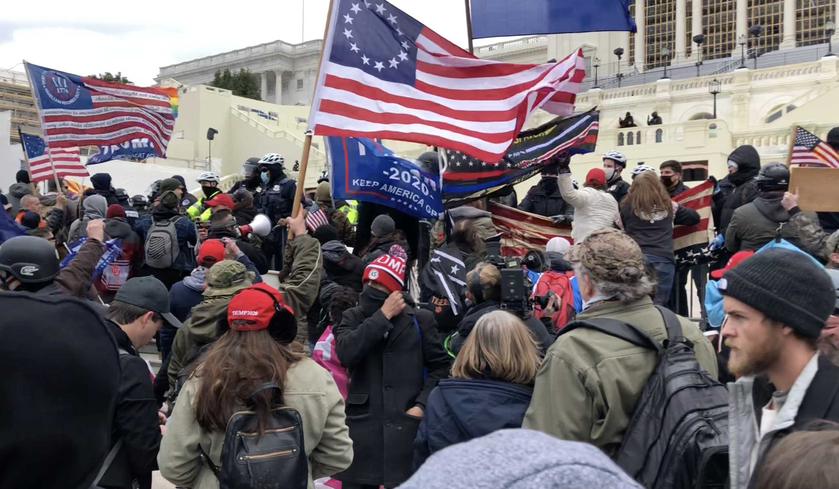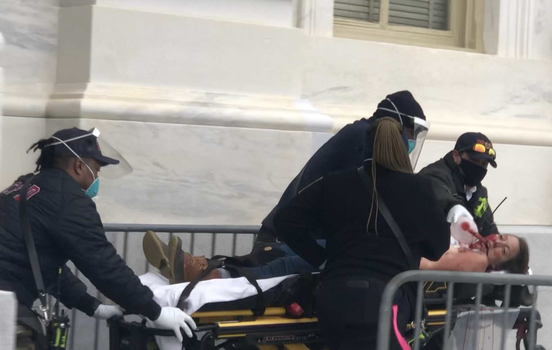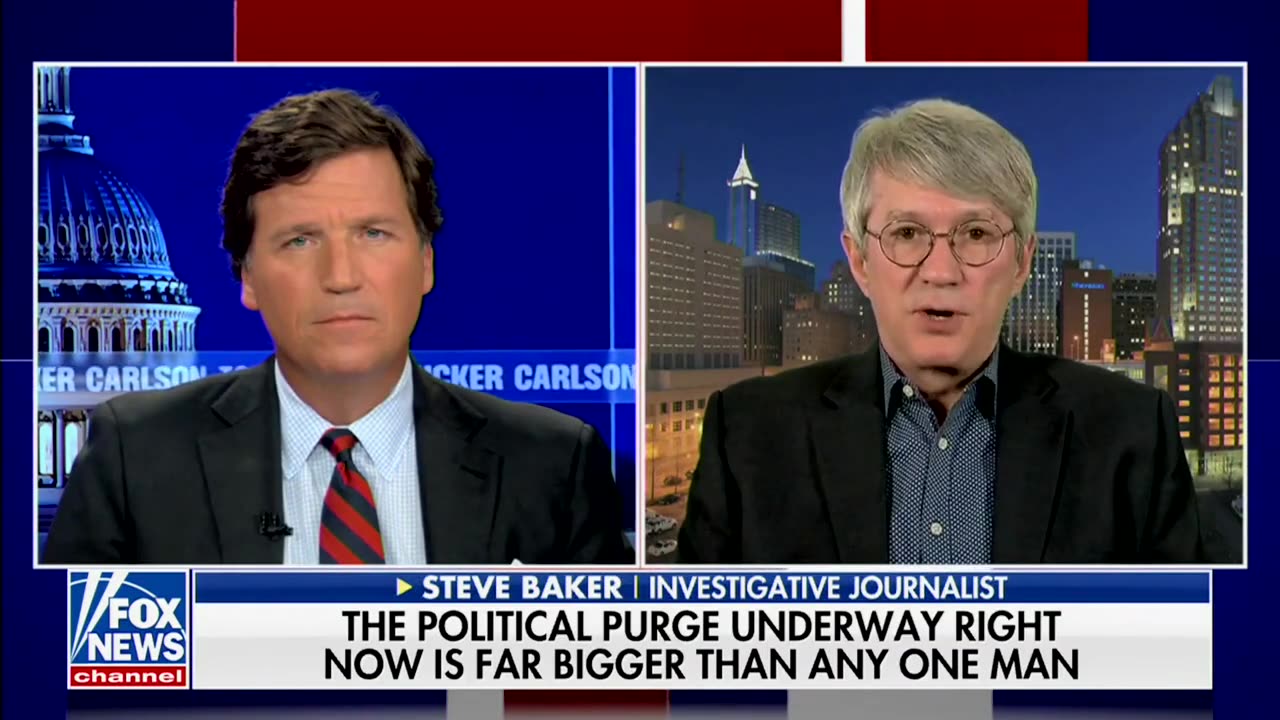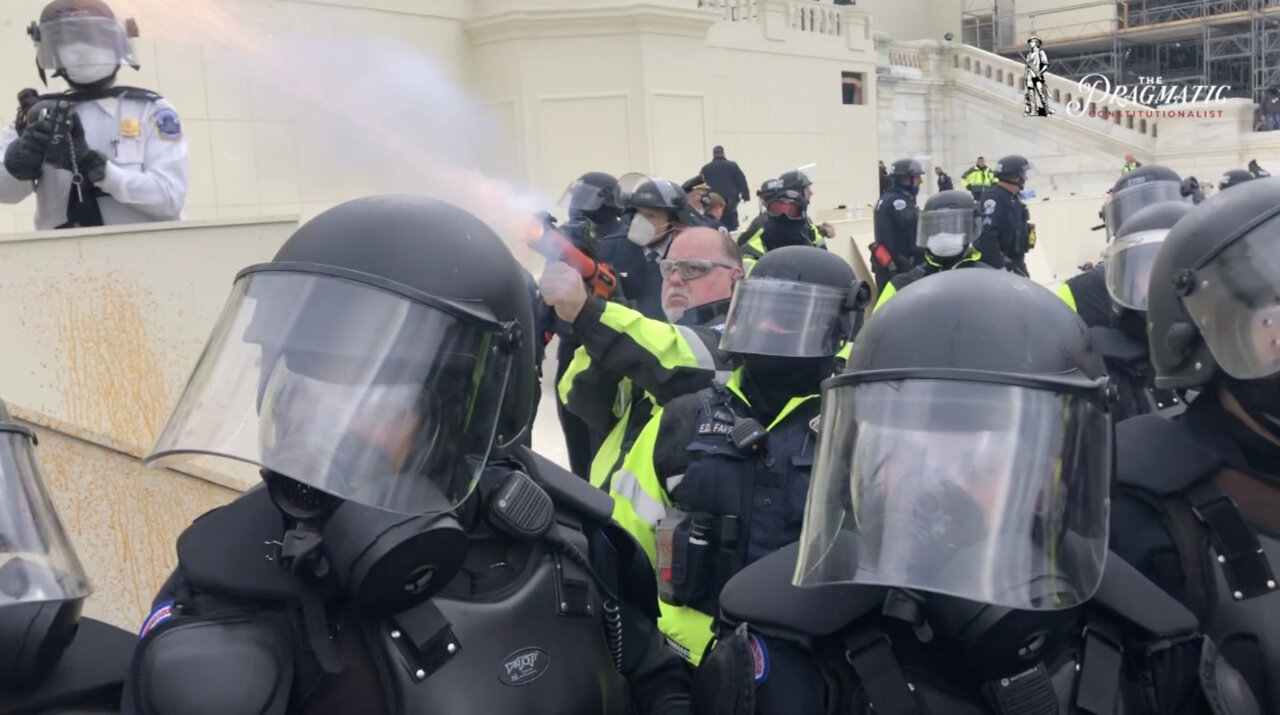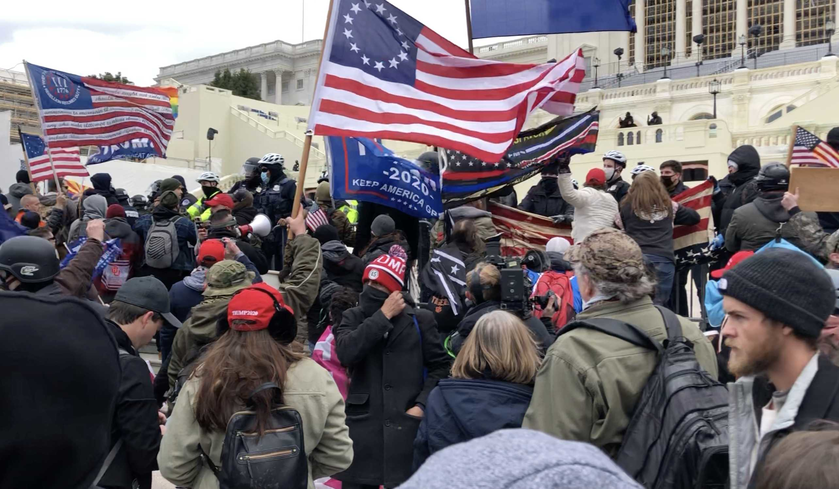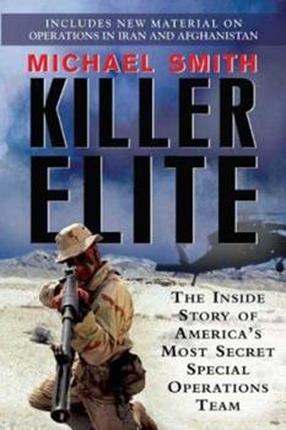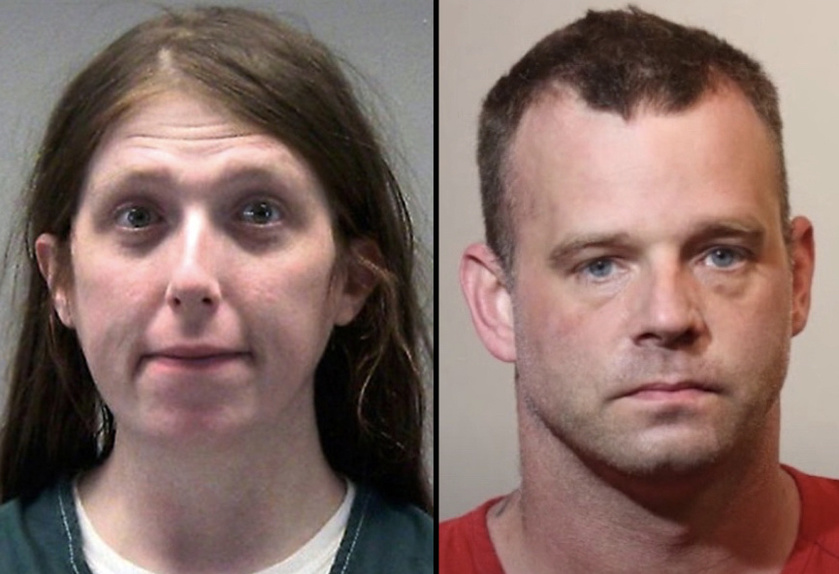
As previously stated . . . when posting these Tweetstorm rollouts, they are “As Is” . . . “warts and all.” I’m not a professional courtroom reporter, and given my blazing 20-words-per-hour typing speed, (ha), I’m not even attempting to to give verbatim transcriptions. These are overviews and paraphrases, for the most part.
Jessica Watkins Sentencing Hearing - May 26, 2023

I'll be live tweeting the sentencing hearings for Oath Keepers Jessica Watkins and Ken Harrelson today. While my tweets are less technical summarizations, you should also follow a couple of the real pros: @rparloff and @Brandi_Buchman, for a more complete picture.
——
Judge Mehta enters the courtroom at 9:37 am to begin the hearing for the sentencing of Jessica Watkins.
Mehta begins by discussing the scheduling and order of the day, then begins the summary of the pertinent details of Watkins’ conviction, guideline enhancements, the charges, her behaviors that day, and following J6.
Watkins was not convicted of ‘Seditious Conspiracy,’ but was of the other two conspiracy charges.
DOJ Attorney Alexandra Hughes rises to request a “significant” length of imprisonment for Watkins, based on her behavior and inflammatory rhetoric on J6. Hughes reviews the fact she was active in recruiting others to join both her own militia but also the OKs.
Watkins and the others she recruited brought weapons - which they left in Virginia - so DOJ asks for a “leadership enhancement” of her sentencing. They also ask for an enhancement based on the fact she deleted messages, chats, and apps from her phone following J6.
Watkins’ words on J6 were not only aggressive, inflammatory, (and exaggerated) - but she also was involved in that shoving scrum with MPD officers, so the DOJ also asks for the terrorism enhancement. (Watkins took full responsibility for those words and actions in the trial.)
Atty Jonathan Crisp rises to speak for Watkins, explaining that her words and actions ultimately had nothing to do - in context - with stopping the certification of the government. He also explains that she originally answered the call to join the OKs in DC as a “medic.”
——
Crisp reminds the court that Watkins was cooperative with the authorities in her arrest. That she voluntarily turned herself in. There was no manhunt. Multiple proffers were made in her cooperation.
He argues against the enhancements based on her cooperation, and especially against the terrorism enhancement, based on the lack of evidence that she had any such ideals or actions.
Mehta again summarizes certain of Watkins’ behaviors that justify her and her coconspirators’ enhancements pertaining to leadership, as well as her participation in planning calls with Rhodes, and her rhetoric which shows her state of mind and preparedness for violence.
Mehta, similarly as in yesterday’s hearings, recites and reminds of many of Watkins’ most inflammatory rhetoric against the change of government to the Biden administration. He also reviews her recruitment efforts to her own militia and OKs.
Mehta continues the review, including her participation in leadership planning and scheduling chats directly for J6 - including QRF, hotels, transport of weapons, etc. Then he goes into her specific leadership conduct on J6 itself.
——
Mehta agrees with the sentencing enhancement for obstruction, property damage, and physical injuries to officers. He also agrees with the enhancement for the interference of justice. Planning and preparation enhancement applies.
Mehta says she doesn’t rise to the level of either Rhodes or Meggs, but her leadership enhancement is justified by a preponderance of the evidence, given her actions directing her “sub-group.”
Because she deleted messages and apps, knowing she’d be investigated, she earned the enhancement for the interference of the administration of justice. She earned - by her intention to influence by force & intimidation - more enhancements.
Mehta references Crisp’s argument about her cooperation and admittance of her guilt in her personal actions during the trial. He states that she did not admit to a majority of the counts against her - including the conspiracy charges - and as a matter of law, the departure request doesn’t apply.
Mehta says he will take into account her cooperation during her arrest, but her military record will not be considered - considering she left under circumstances that were “no fault of her own.” And, there was nothing extraordinary about her service.
The guideline calculation for which he will be considering her sentencing will be 168 to 210 months. (14 to 17.5 years)
Mehta announces a short break.
——
Judge Mehta returns to the bench at 10:45 am and intros the government’s allocution. DOJ Atty Hughes begins by describing Watkins’ efforts to push against the police line in the hallway toward the Senate chamber.
Hughes claims she has never taken full responsibility for that particular action - that she used her full body and pushed against those officers - resulting in the physical and emotional damage to Officer Owen and others.
Hughes reviews commentary Watkins’ has made since J6, and that she has said police officers were responsible for much of what happened, and even responsible for most of their own injuries.
Hughes says Watkins is a danger to society.
Mehta asks Hughes how he should think about Watkin’s life story (her transgenderism - though not specifically stated) and how that should mitigate his final sentencing. Did her life’s troubles lead to her actions on J6?
Hughes pushes back and says she deserves sympathy, but not to the extent she should be treated differently in sentencing. In fact, she advocates the court uses her to send a warning against any such societal justifications for ‘fantastical’ behaviors and crimes.
Watkins rises on her own behalf. She immediately begins crying. Mehta tells her to take her time. She expresses her regrets for her actions and says her right to seek redress for grievances is never a justification for violence.
She said she wasn’t aware of the violence taking place on the west side, and that she actively tried to stop vandalism - and sees the irony of trying to stop crimes while she was herself committing a crime. “I shouldn’t have been there.”
For a long time, she was in denial of her culpability, but her atty (Crisp) was himself a military colonel and helped her understand her responsibility for her actions.
She continues to state that she “now” completely understands the reasons for her justifiable convictions. She speaks highly of her jurors and says she has nothing but respect for them and their decisions.
Watkins says she had no intention to stop the certification of the election, but that she desperately wanted Congress to “audit” the 2020 election, and that she “still” does.
Watkins explains her comments about officers hurting themselves were a direct reference to MPD Sgt. Thau’s body cam video, which shows a gas canister fired by a cop into a group of other cops, causing them to retch and throw up in response.
She concluded with an emotional and unqualified apology for all her actions.
Atty Crisp begins his final remarks, reminding the court of her earliest cooperation in turning herself in, handing over electronic devices, and taking personal responsibility for her actions.
He asks the court to understand that he wouldn’t allow her to admit to the conspiracy charges during the trial and that it would present complications in her other charges.
As to her transgenderism, he talks about the tremendous strides she has made in life contending and dealing with that challenge. She was rejected by her parents. She rejected herself. She was rejected by the Army. She was rejected by her colleagues.
All of this certainly affected her decisions and makes. Crisp asks for “justice with compassion,” and a significant downgrade of the sentencing being contemplated. He asks for a sentence of 60 months.
Mehta then asks Crisp to explain the phone call Hughes referenced where Watkins seemed to show a lack of empathy toward the officers who were injured. Crisp says she’s reacting to being a demonized “poster child” to the entire J6 affair.
Crisp explains that she’s also dealing with her own level of PTSD, and she’s having to deal with the pressures of being a “J6 poster child.”
Mehta announces a 10-minute break to collect his thoughts.
——
(Note: Many of the reporters in the media room are anticipating a downgrade of Watkins’ sentencing. Generally agreeing she will receive a 7-year sentence.)
——
Metha returns to the bench at 11:32 am and says the guidelines can be mitigated by other considerations. He reminds us that the seriousness of the conspiracy charges set this case apart from other cases with more violent behavior but without conspiracy considerations.
Mehta begins to review the defense characterizations of her less-than-violent behavior compared to other J6 defendants. She didn’t breach any barriers, etc. But, then cites the SCOTUS case which speaks to the seriousness of criminal conspiracy.
Mehta again says she’s not a Rhodes or Meggs, but that her role is more than that of just a “foot soldier.” And that she bears greater responsibility for the others she brought into the conspiracy.
He explains that her role was more aggressive and more purposeful than most of the others, and she led others to follow her purpose. She also celebrated her actions immediately following those actions.
Mehta reviews her life story and congratulates her on her ability to navigate and overcome her personal difficulties. He says he’s “happy” she found someone who supports and loves her. (Montana Siniff.)
He believes she can ultimately be held up as a role model in the trans community, but he has a hard time understanding some of her continued lack of empathy for other circumstances.
Mehta says this process is always difficult but is “particularly difficult” in her case.
Oath Keeper Jessica Watkins of Ohio has been sentenced to 102 months. (8.5 years)
Kenneth Harrelson Sentencing Hearing - May 26, 2023

(I began by retweeting Jordan Fischer of WUSA @JordanOnRecord):
Judge Mehta has now given the five longest Jan. 6 sentences:
18 years - Stewart Rhodes
14 years - Peter Schwartz
12 years - Kelly Meggs
10 years - Thomas Webster
8.5 years - Jessica Watkins
——
The sentencing hearing for Ken Harrelson of the Oath Keepers is set to begin in a few minutes. This photo is of Ken and 3 other OKs forming a protective line between the rioters and Officer Harry Dunn. Something Dunn first told the FBI did take place, but then later changed his story to say it never happened.

Officer Harry Dunn and rioters.
Judge Mehta takes the bench at 1:44 pm for the sentencing hearing of Kenneth Harrelson and immediately begins the preview of how things will proceed.
Mehta says he’s not going to very much of the sentencing reports and guidelines, and that Harrelson is obviously not at the same level as Rhodes and Meggs in the hierarchy of the OKs. But they will discuss what ‘ground team leader’ means.
They will also discuss the allegation that Harrelson disposed of gins after J6.
Nestler rises to state he believes was a part of the conspiracy along with other OKs, and that he attended firearms training with other OKs back in Sept. of ’20. He brings up that Harrelson deleted Signal chat messages on the evening of J6.
Nestler still wants to make Harrelson complicit in the seditious conspiracy, even though the jury acquitted him of that. Mehta interrupts to ask Nestler how it’s possible that Harrelson could delete Signal messages, and they do not still show up on other people’s phones.
Nestler can only conjecture that Harreslon had some knowledge of how to wipe those messages clean on both ends. (BUT, we learned in the trial that some of his very few messages WERE visible on others’ phones.)
The point is, Nestler is still trying to implicate Harrelson in the conspiracy - without evidence - despite the fact they could never prove that in the trial, and that Harrelson never showed up on those chats until January 3.
Nestler states that Harrelson’s intent was demonstrated when he was “screaming Treason” when he entered the building. Mehta continues to push back against Neslter’s allegations.
Nestler again misrepresents WHEN Harrelson was added to the DC Op Jan 6 Signal message, by OMISSION of that fact.
Mehta says he disagrees that chanting “treason” is evidence of intent to commit violence or physical injury, and Nestler continues to debate that his actions were intimidating and threatening conduct. Claiming he was “pushing past police officers at the door.”
Nestler then repeats the claim that Harrelson touched the body armor of Officer Salke and that in itself was a threat. He also believes Harrelson’s participation in bringing guns to the QRF was also threatening.
Nestler again makes the false claim that Harrelson was a “leader” because he “told others what they needed to wear.\
Mehta again pushes back. (He has not done this level of pushback in any of the other three hearings.) He is asking Nestler what of Harrelson’s actions prove he was a “leader.” Nestler continues to allege his leadership is evidenced by some of Harrelson’s communications.
Nestler then says Harrelson hid his AR-15 after he got home, and continued to be in communication with Meggs and other OKs in the weeks after J6, showing no contrition by this behavior.
Atty Brad Geyer rises and says he will save most of his comments for his allocution statements, later. Geyer says Harrelson did have administrative privileges on the GoToMeeting app, but did not participate because the one in question was on his birthday.
When Meggs called Harrelson on J3, Meggs did tell him he’d be the “ground team leader.” Geyer makes the point that Dolan was the one who drove to DC and that Dolan was a retired Staff Sgt., meaning Harrelson would have deferred to him - not the other way, as alleged.
Geyer says that regardless of what the Court thinks about the legitimacy of the security details, Harrelson was sincerely engaged in that operation, as video evidence proved in the trial. (The government contended the security details were a “diversion” from their actual conspiracy.)
Geyer reminds the Court that DC jurors can’t understand how many gun ranges are in Florida, and the types of activities that take place there, and the Court shouldn’t consider that day at the range as something nefarious.
Geyer explains how the person chanting “Treason” on a megaphone was doing so at a time when Harrelson had his mouth open, and it can’t be assumed Harrelson was participating.
Then the CCTV shows multiple scenes of Harrelson engaging in non-threatening, non-violent, tourist-like behavior while taking videos with his phone.
Geyer believes the allegations of Harrelson’s “leadership” are weak at best, and is strengthened by the fact Harrelson’s name rarely came up in the trial itself - sometimes, not for weeks.
Geyer discusses Harrelson’s apolitical nature and lack of sophistication about how our government works.
Mehta calls for a short break “to look at a few things.”
——
Mehta returns to the bench at 2:39 pm and begins a review of factual findings about the specific convictions.
Mehta says Harrelson is responsible for the actions of the others as participants in the conspiracy. Harrelson is also responsible for his participation in the QRF and understood the nature of how it was to be used if they were called into action.
Mehta brings up the firearms training in Florida and his travel from Florida with his own rifle and others’ firearms.
Mehta says he recalls the video of the ‘pat down’ of Ofc. Salke, and that Harrelson then described how ineffective that body armor would be . . . and that Harrelson made other comments about how much better prepared they could have been with their own gear.
Mehta says this confirms his participation in the broader conspiracy. And even though he didn’t engage in any violence, he was prepared to do so if the opportunity presented. He also says he believes Harrelson could see the violence at the east door.
Mehta says he believes it is Harrelson’s voice chanting “treason” on the phone video. He believes he hid his weapon when he got home because he knew he’d later be subject to investigation.
He says he thinks Harrelson shared the purpose of the others to interrupt the proceedings. Even says he doesn’t understand why the jury didn’t convict him of the seditious conspiracy charge, by a preponderance of the evidence.
Mehta doesn’t think Harrelson had any degree of leadership with respect to the conspiracy - regardless of his position in the OKs in itself. There’s not any evidence that Harrelson directed or controlled anyone on J6. Not enough for a 3-level enhancement.
“The terrorism enhancement is applicable because of what he has been convicted of.” He’s only going to add a single point, and his behavior makes him less culpable than some of the others. The interference of the administration of justice does apply.
Total of 97 to 121 months qualified under the guidelines.
Nestler begins his allocution by saying Harrelson was the point person with regard to weapons and materials. Mehta asks if this was presented at trial. Nestler says, “No.” But Mehta allows him to proceed.
Nestler again brings up the guns. Against brings up the chanting of “treason,” and states that Harrelson meant to sentence Congress Persons to “death” by that chant.
Nestler brings up Ofc. Dunn’s testimony that he was intimidated and scared by the OKs presence.
Ken Harrelson rises to speak for himself. States that he didn’t have any intention to go to DC, and didn’t have any political intentions related to that trip. He wouldn’t have brought his gun to Virginia if he knew what he knew now.
He was promised free lodging and free food. It was so disorganized on the 5th, he wanted to leave and wished he had. He got in the wrong car with the wrong people and went to the wrong place.
As to Dunn - that was the first time he’d heard anything about violence. He did not see Salke being attacked, and would never attack another officer. “I thought I was helping them.” Through tears, he apologized to Dunn and Salke for not helping them more.
He says he is responsible for his foolish actions that have ruined his life and that of his family. He broke down in tears as he finally thanked his family for supporting him, and telling him that he loves them.
Geyer takes the podium and has to take time to collect himself. He thanks the Court and the clerks for their hard work. Thanks the US Marshals. He even thanks the Lewisburg prison, to which Harrelson was transferred after nearly two years in the DC Gulag.
Geyer says Harrelson only met his “junkie” mother one time, at the age of 19. Angel lost the family home in Hurricane Katrina, and they met in one of Ken’s Army disaster relief projects. He hasn’t been allowed to see the face of his kids since being in prison.
“I understand the pressure the Court is under, and I’m left with praying for a miracle here.”
If ever there was a reason for a downward departure, (of sentencing), the mentoring of his son resulted in him going into the Army, and his daughter is in the JROTC. He doesn’t hate the government’s institution.
Geyer discusses the interaction with Ofc. Harry Dunn and the emergence of a new video showing Ken with both arms extended, holding the crowd back from Dunn. Then, he discusses the prayer they engaged in while in the Rotunda.
That was Ken’s first time in DC, and he was overwhelmed by the majesty of the Rotunda. Geyer is attempting to show a video, (tech problems), which shows that Ken and other OKs took time to pray in the rotunda.
Then he presented the new video where Ken firsts encountered Dunn, then spins around and holds his hands out to keep the crowd away from Dunn. Geyer reminds the court of trial evidence that shows Ken’s surprise when the east barricades were breached.
Geyer begins comparing other cases where others were far more violent, were wearing body armor and gas masks, (unlike Ken), and those who even took guns into the District. People who struck officers got as little as 41 months, 30 months, 32 months, and 24 months.
By contrast, in Harrelson’s mind, he believes he was coming to Ofc. Dunn’s defense. Geyer says he has no sentencing recommendation, and just asks Mehta to please do what is necessary to get Ken back home to his family. “He will exceed your expectations.”
Mehta calls for a short recess.
——
Mehta returns to the bench at 4:04 pm and reiterates the guidelines are 97 to 121 months. He addresses Geyer’s comparison of those who received far shorter sentences while engaging in worse, more violent behavior. But, the nature of conspiracy is far more serious.
Mehta reminds he was convicted of only one of the conspiracy counts. Says Harrelson is a different person today, and can’t possibly read his mind either then or now.
But, “Mr. Harreslon, I don’t think you are what the government has suggested.”
Mehta says he didn’t see any of those types of communications as the rest of OKs, and thinks it’s more likely Ken wasn’t even paying attention to all those other messages. he still has a problem with the pat-down of Ofc. Salke, but still doesn’t think he’s like the others.
Mehta reviews his having successfully overcome a hard childhood and life, honorable service in the military, and the fact he has raised children to be proud of.
Mehta continues to say he believes Ken was just not comparable to the others and still feels he has suffered sufficiently.
Kenneth Harrelson of the Florida Oath Keepers has been sentenced to 48 months. (4 years.)

